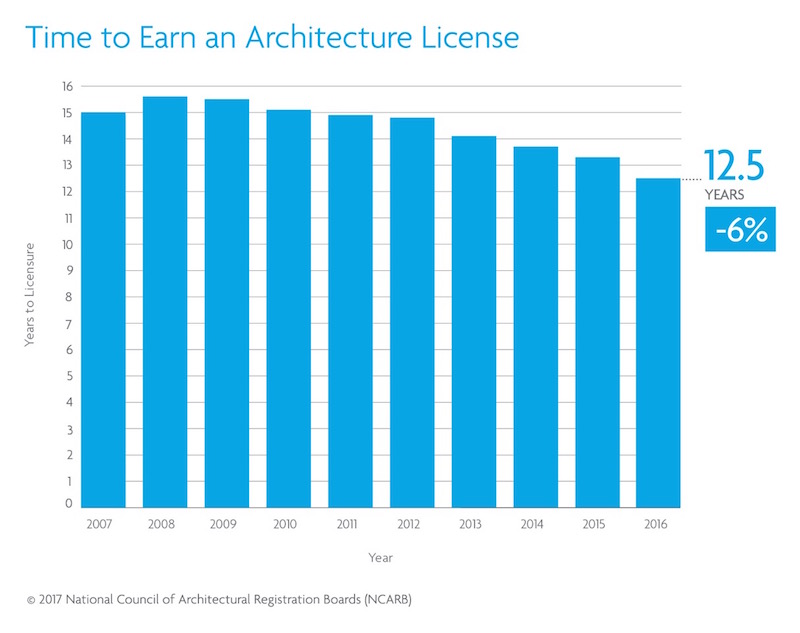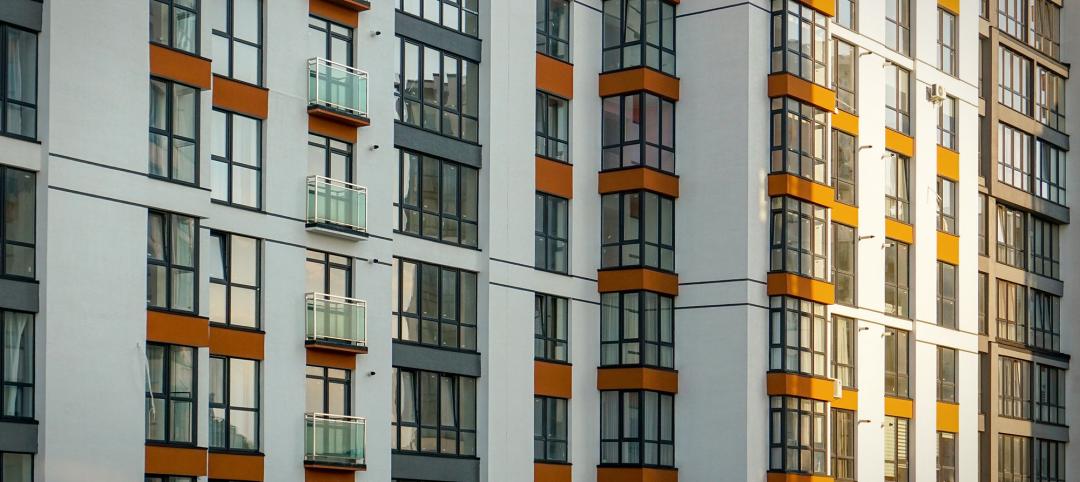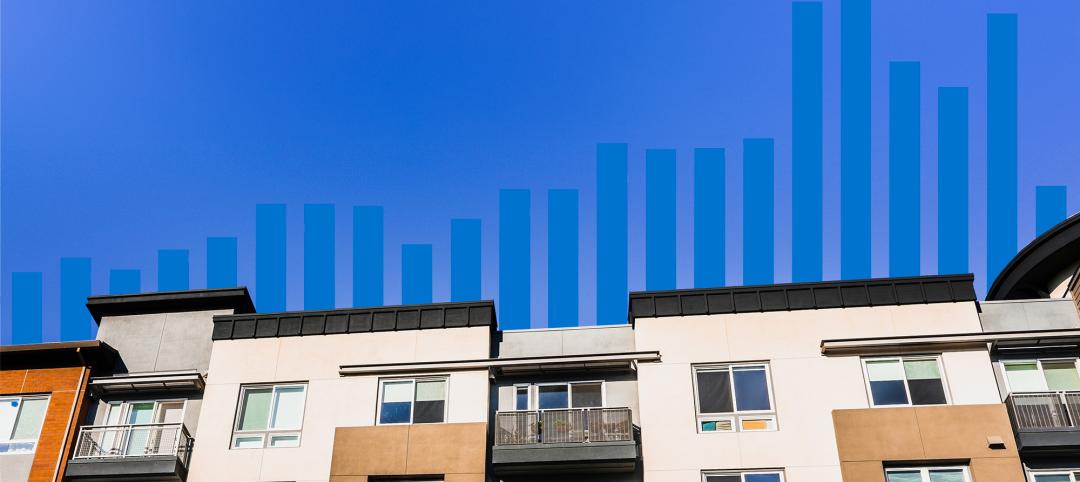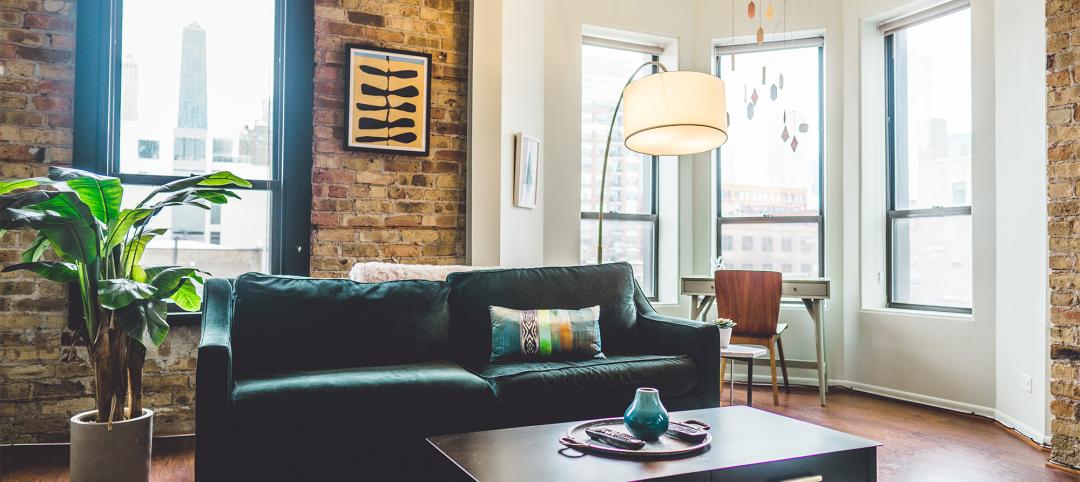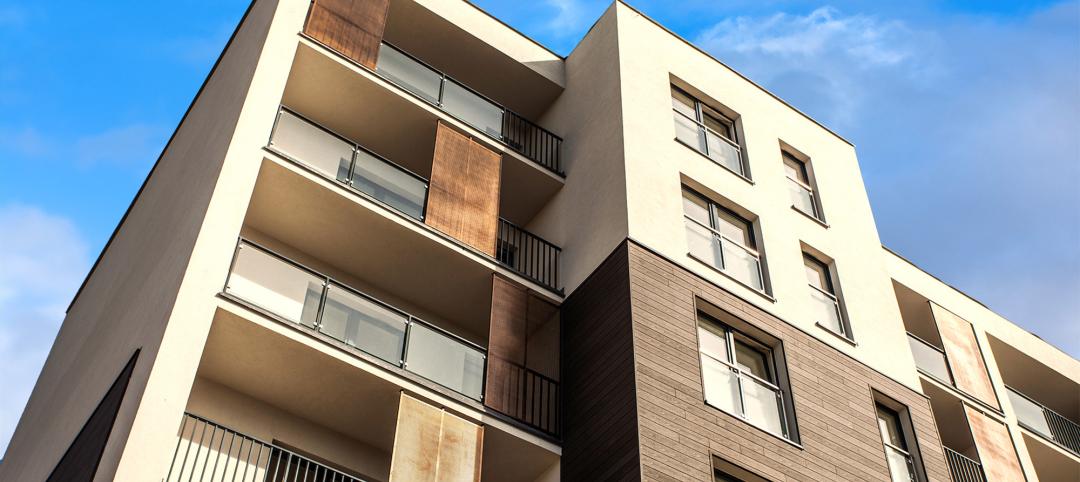The latest architect licensing data indicates that the time to become an architect has decreased to an average of 12.5 years—from the time a student enrolls in school to the moment they receive a license. This is the eighth year in a row that the timeline to licensure has shortened, according to data from the 2017 edition of NCARB by the Numbers. This trend is driven by candidates completing the experience and examination programs concurrently and more quickly.
Released annually by the National Council of Architectural Registration Boards (NCARB), NCARB by the Numbers provides exclusive insight into the number of U.S. architects, the pool of candidates working toward licensure, and diversity in the profession.
Over the past decade, NCARB has worked with licensing boards to streamline, update, and align two key pillars on the path to licensure: the Architectural Experience Program™ (AXP™) and Architect Registration Examination® (ARE®). These efficiencies have led to a reduction in completion times. Plus, newly licensed architects are increasingly overlapping these two programs. As a result, the time it takes to earn a license has gradually improved, with architects earning a license 9.6 months sooner than in 2015.
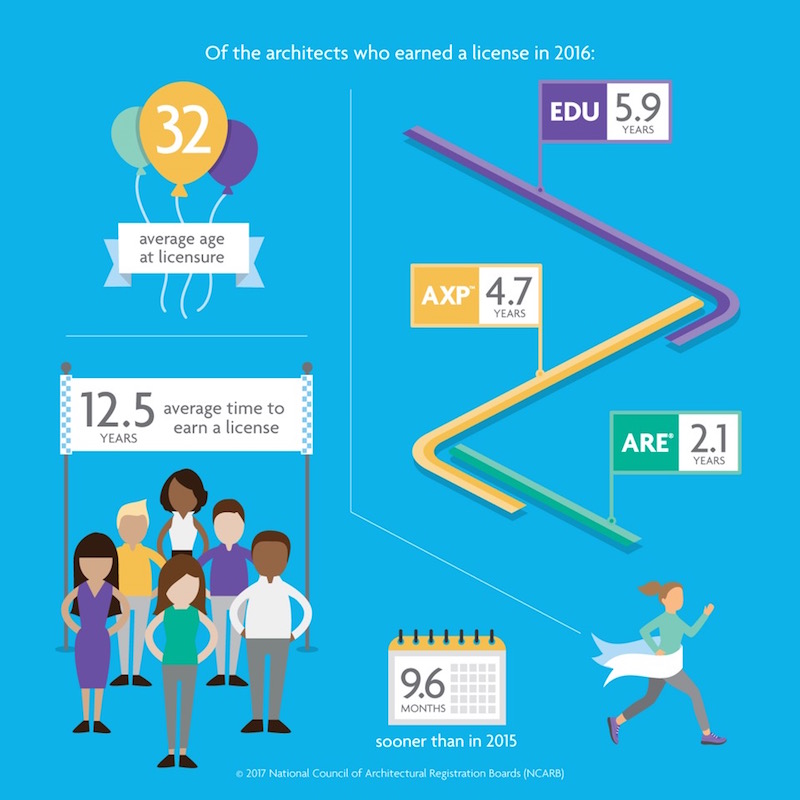
A closer look reveals that architects who earned an initial license in 2016 completed the AXP and ARE in just under six years. For comparison, architects licensed in 2015 took just under seven years to complete the two programs.
“By updating our programs to reflect the realities of modern practice, candidates can now pursue licensure in a way that ts their lifestyle,” said NCARB President Kristine Harding, NCARB, AIA. “With guidance from our licensing boards, NCARB has been able to open doors to a new pool of candidates while maintaining the rigor needed to protect the public’s safety.”
NCARB’s data also reveals that new architects are slightly younger. In 2016, the average age of a newly licensed architect was 32, an eight-month drop from the previous year. This marks the eighth year in a row that this benchmark has decreased, with architects earning a license 2.8 years sooner than a decade ago.
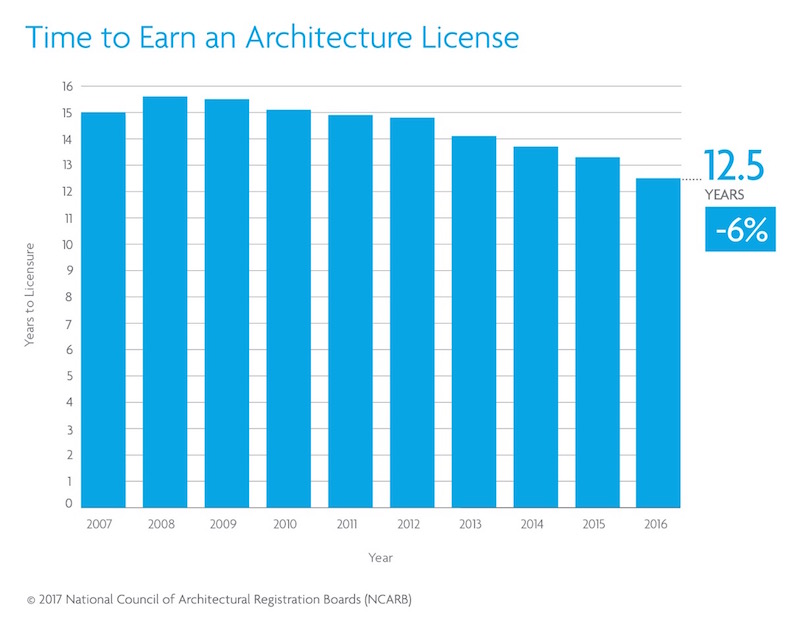
The full 2017 edition of NCARB by the Numbers will be available in July. To learn more about NCARB’s data, visit www.ncarb.org.
Related Stories
Multifamily Housing | Feb 14, 2024
Multifamily rent remains flat at $1,710 in January
The multifamily market was stable at the start of 2024, despite the pressure of a supply boom in some markets, according to the latest Yardi Matrix National Multifamily Report.
Industry Research | Feb 8, 2024
New multifamily development in 2023 exceeded expectations
Despite a problematic financing environment, 2023 multifamily construction starts held up “remarkably well” according to the latest Yardi Matrix report.
Industry Research | Jan 31, 2024
ASID identifies 11 design trends coming in 2024
The Trends Outlook Report by the American Society of Interior Designers (ASID) is the first of a three-part outlook series on interior design. This design trends report demonstrates the importance of connection and authenticity.
Apartments | Jan 26, 2024
New apartment supply: Top 5 metros delivering in 2024
Nationally, the total new apartment supply amounts to around 1.4 million units—well exceeding the apartment development historical average of 980,000 units.
Self-Storage Facilities | Jan 25, 2024
One-quarter of self-storage renters are Millennials
Interest in self-storage has increased in over 75% of the top metros according to the latest StorageCafe survey of self-storage preferences. Today, Millennials make up 25% of all self-storage renters.
Industry Research | Jan 23, 2024
Leading economists forecast 4% growth in construction spending for nonresidential buildings in 2024
Spending on nonresidential buildings will see a modest 4% increase in 2024, after increasing by more than 20% last year according to The American Institute of Architects’ latest Consensus Construction Forecast. The pace will slow to just over 1% growth in 2025, a marked difference from the strong performance in 2023.
Adaptive Reuse | Jan 23, 2024
Adaptive reuse report shows 55K impact of office-to-residential conversions
The latest RentCafe annual Adaptive Reuse report shows that there are 55,300 office-to-residential units in the pipeline as of 2024—four times as much compared to 2021.
Construction Costs | Jan 22, 2024
Construction material prices continue to normalize despite ongoing challenges
Gordian’s most recent Quarterly Construction Cost Insights Report for Q4 2023 describes an industry still attempting to recover from the impact of COVID. This was complicated by inflation, weather, and geopolitical factors that resulted in widespread pricing adjustments throughout the construction materials industries.
Multifamily Housing | Jan 15, 2024
Multifamily rent growth rate unchanged at 0.3%
The National Multifamily Report by Yardi Matrix highlights the highs and lows of the multifamily market in 2023. Despite strong demand, rent growth remained unchanged at 0.3 percent.
Apartments | Jan 9, 2024
Apartment developer survey indicates dramatic decrease in starts this year
Over 56 developers, operators, and investors across the country were surveyed in John Burns Research and Consulting's recently-launched Apartment Developer and Investor Survey.


